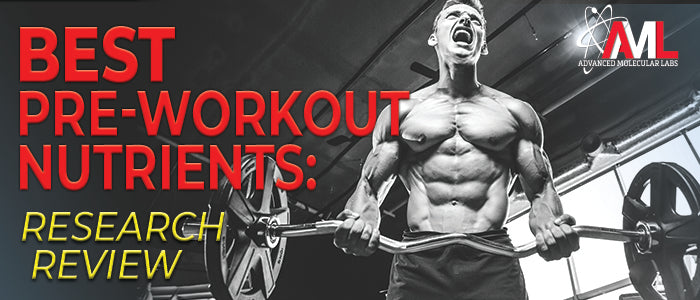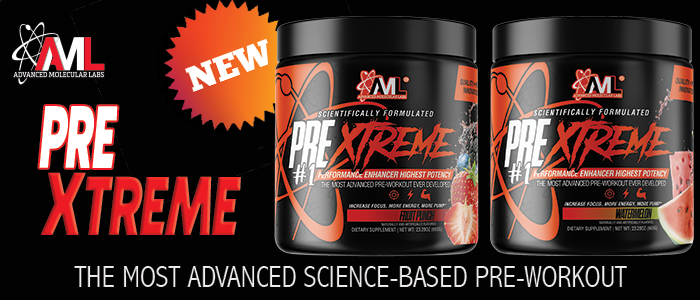


TRT Weight Loss: Unlock Benefits of Testosterone Supplements
By Robert A. Schinetsky
New Study!
Estimates indicate that nearly 3 in 4 men (73.7 percent) are considered to be overweight or have obesity.[1]
Further, obesity is known to be a contributing factor in some of the leading causes of preventable, premature death, including heart disease, stroke, type 2 diabetes and various forms of cancer.
And, recent studies indicate that obesity is also associated with worse outcomes (i.e. death) from COVID-19 infection as well.[2]
This has caused many health agencies around the world to investigate various means to combat the world's collectively expanding waistline.
New data suggests that testosterone therapy may be a powerful weapon in the war on obesity.[3]
Testosterone for Weight Loss
Testosterone is the primary sex hormone and anabolic steroid in men. It stimulates sperm production and sex drive, and it also plays essential roles in muscle growth and bone development/maintenance.
But, that’s not all.
Testosterone also impacts cognitive function, mood, and fat distribution, making it a key factor in testosterone and weight loss.
Unfortunately, once men pass age 30, they can expect testosterone levels to drop very gradually, about 1% to 2% each year.
Low testosterone levels are known to result in:
- Reduced feelings of energy
- Decreased sex drive
- Weight (fat) gain
- Feelings of depression
- Low self-esteem
- Moodiness
- Thinner bones
Some researchers have observed that men with low testosterone levels appear to be more susceptible to severe outcomes from COVID-19 than women, leading to the notion that sex hormones may play a role in the severity and outcome of COVID.[4]
All of this serves to underscore the importance that testosterone plays in keeping men healthy, well, and fit.
So, what does that latest research show regarding testosterone and weight loss?
Well, researchers analyzed the data of 471 men (average age: 61.57 years old) with low testosterone production ("functional hypogonadism") and obesity.[3]
Around 58% of the men received testosterone therapy every 3 months for the duration of the study, while the remainder opted out of the steroid injections, thereby serving as the control group for the study.
Significant Body Fat Loss!
Men receiving testosterone therapy dropped an average of 50.6 lbs (23kg)![3]
FYI, that’s roughly equivalent to 20% body weight reduction over the duration of the study, highlighting the benefits of TRT and weight loss.
Meanwhile, the men not receiving testosterone therapy (the control group) gained an average of during the study period, while those who did not receive treatment gained an average of 13.2lbs (6kg) during the study.
As expected from such a dramatic reduction in body fat, the testosterone therapy group also experienced a significant decrease in body mass index (BMI), while the control group had an average increase in BMI.[3]
Testosterone and Heart Health
Waist circumference is a known risk factor for cardiometabolic disease.[5,6]
Men receiving testosterone therapy experience a reduction in waist circumference by an average of 13 centimeters while the control group gained an average of 7 centimeters on their waist.[5,6]
The reason this is particularly concerning is that 28% of men in the control (no testosterone therapy) group had a heart attack, and 27.2% had a stroke during the study period.[3]
Men receiving testosterone therapy did not have any major cardiovascular events during the study period.
The testosterone group also had less visceral fat (the kind that accumulates on your organs) by the end of the study period. Visceral fat is linked to metabolic disturbances as well as an increased risk for cardiovascular disease and type 2 diabetes.
Additionally, over 20% of the control group developed type 2 diabetes during the study period, while no men in the treatment group developed the condition.[3]
Testosterone vs Bariatric Surgery
Bariatric surgery is commonly used to help individuals lose weight, and while successful, there are very serious risks linked to the surgery.
The same team of researchers also investigated whether testosterone therapy may be a viable alternative to bariatric surgery for those losing weight on TRT.
According to the researchers, 76 of the men would qualify for bariatric surgery.
Of these, 59 men chose to receive testosterone treatment and lost an average of 66lbs (30kg)
Men receiving the testosterone also experienced an average decrease in BMI of 10 points!
According to lead author on the study, Farid Saad, these results indicate that testosterone therapy could be as effective as bariatric surgery for weight loss — but without the adverse risks associated with the procedure.
More Testosterone, Less Fat!
The results of this latest study indicate that testosterone therapy may be a powerful weapon in the war on obesity.
While hormone therapy does have its place (especially for those that are clinically deficient), the treatment does carry some side effects, including:
- oily skin
- fluid retention
- testicles shrinking
- decreased sperm production
Individuals looking to maximize their testosterone levels naturally need to make sure they have all of their "ducks in a row" in daily life -- getting enough sleep, regular exercise, eating a healthy diet, and managing stress.
If you have those bases covered and are further looking to support healthy testosterone levels, there is AML Test.
AML Test is an advanced testosterone support supplement formulated to increase free testosterone levels using natural ingredients that DO NOT cause suppression or any other unwanted harsh side effects commonly experienced with more “aggressive” protocols. It serves as a natural testosterone booster for those seeking a testosterone booster for men.
As with all Advanced Molecular Labs supplements, AML Test is built on a foundation of research-backed ingredients.
Highlights of AML Test include 50mg DHEA, 4,000IU Vitamin D, and 600mg Fenugreek.
DHEA in particular has been shown to significantly increase free testosterone levels when taken prior to resistance training. Moreover, DHEA has low androgenicity, and it does NOT negatively affect sex hormone-binding globulin (SHBG) or estrogen, in men or women.!
Click here to learn more about AML Test, and why it’s the premier testosterone support supplement on the market!
References
- Overweight & obesity statistics. (2017, August 9). National Institute of Diabetes and Digestive and Kidney Diseases. https://www.niddk.nih.gov/health-information/health-statistics/overweight-obesity
- Tartof, S. Y., Qian, L., Hong, V., Wei, R., Nadjafi, R. F., Fischer, H., Li, Z., Shaw, S. F., Caparosa, S. L., Nau, C. L., Saxena, T., Rieg, G. K., Ackerson, B. K., Sharp, A. L., Skarbinski, J., Naik, T. K., & Murali, S. B. (2020). Obesity and mortality among patients diagnosed with COVID-19: Results from an integrated health care organization. Annals of Internal Medicine. https://doi.org/10.7326/m20-3742
- Saad, F. Haider, A., et al .Long-term therapy with testosterone undecanoate injections (TU) results in profound and sustained weight loss over 11 years in obese men with hypogonadism: real-world data from a registry study. (2020).
- Rastrelli, G, Di Stasi, V, Inglese, F, et al. Low testosterone levels predict clinical adverse outcomes in SARS‐CoV‐2 pneumonia patients. Andrology. 2020; 00: 1- 11. https://doi.org/10.1111/andr.12821
- Klein, S., Allison, D. B., Heymsfield, S. B., Kelley, D. E., Leibel, R. L., Nonas, C., & Kahn, R. (2007). Waist circumference and Cardiometabolic risk: A consensus statement from shaping America's health: Association for weight management and obesity prevention; NAASO, the obesity society; the American Society for nutrition; and the American Diabetes Association*. Obesity, 15(5), 1061-1067. https://doi.org/10.1038/oby.2007.632
- Christian AH, Mochari H, Mosca LJ. Waist circumference, body mass index, and their association with cardiometabolic and global risk. Journal of the Cardiometabolic Syndrome. 2009 ;4(1):12-19. DOI: 10.1111/j.1559-4572.2008.00029.x.






